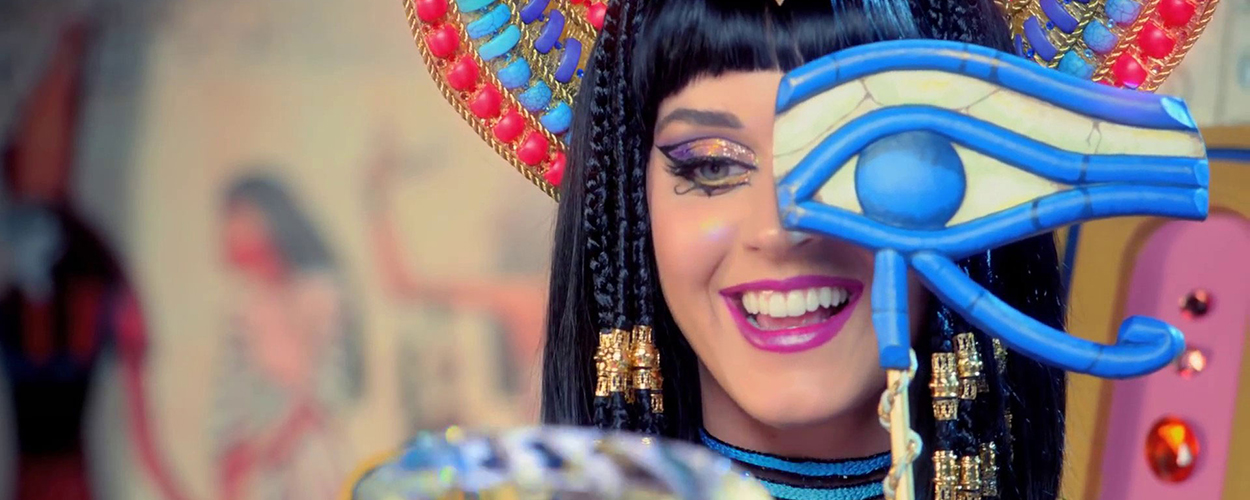This website uses cookies so that we can provide you with the best user experience possible. Cookie information is stored in your browser and performs functions such as recognising you when you return to our website and helping our team to understand which sections of the website you find most interesting and useful.
Artist News Business News Labels & Publishers Legal Top Stories
Katy Perry says Ninth Circuit should reject latest Dark Horse song-theft claims on Stairway grounds
By Chris Cooke | Published on Thursday 1 April 2021

Katy Perry’s legal team have urged the Ninth Circuit appeals court in the US to keep in place a lower court ruling in the big song-theft legal battle over her track ‘Dark Horse’. Doing otherwise, they add, would go against the appeal court’s own judgement in the headline-grabbing ‘Stairway To Heaven’ case.
Marcus Gray accuses Katy Perry and her collaborators of ripping off his song ‘Joyful Noise’ on her 2013 hit. At first instance, he successfully convinced a jury that Perry had indeed infringed the copyright in his earlier song, and Perry and her songwriting pals were ordered to pay Gray and his team $2.8 million in damages.
However, the judge overseeing the original case – Christina Snyder – then overturned the jury’s decision, having concluded that the Gray team’s legal arguments failed as a matter of law. She wrote in her March 2020 judgement that “the uncontroverted evidence points to only one conclusion”, that being that the musical element shared between ‘Joyful Noise’ and ‘Dark Horse’ – a repeated note melodic phrase – was not substantial enough to enjoy copyright protection.
Synder’s March 2020 decision came shortly after the Ninth Circuit ruling on the ‘Stairway To Heaven’ song-theft case. Perry’s team had used that latter judgement to bolster their case for why Snyder should overturn the jury’s conclusion, stating that the Ninth Circuit’s ‘Stairway’ decision provided “an extended defence of why copyright law doesn’t cover ‘common musical elements’ and basic ‘building blocks'”, because doing so “might ‘curtail the creation of new works'”.
However, Gray – unsurprisingly – objected to Snyder interfering with the jury’s conclusion in his original case. And he took his grievances to the Ninth Circuit.
In a legal filing last October his lawyers wrote: “The district court erroneously asserted that ‘a pitch sequence … is not entitled to copyright protection’. Perhaps the district court didn’t understand that a pitch sequence is the technical term for a sequence of musical notes, ie a melody. Copyright most definitely protects original melodies, and especially distinctive eight-note melodies that repeat throughout a song”.
Insisting that similar and indeed shorter melodic phrases have enjoyed copyright protection in the past, Gray’s team added that “the music world is filled with examples of famous, distinctive and unquestionably original eight-note two-bar repeating melodies that are as simple, if not simpler, than the one at issue here”.
The Perry side has now filed its response to the Ninth Circuit, arguing that Snyder was right to conclude that the elements found in both ‘Joyful Noise’ and ‘Dark Horse’ are not substantial enough for an infringement claim. And if the appeals court was to disagree, they go on, that would contradict the good old ‘Stairway’ ruling.
“As this court noted in its seminal decision [in] Skidmore v Led Zeppelin, it is critical to preserve for music creators the use of the basic building blocks of music, and not allow improper monopolisation to form the basis of an infringement claim”, Team Perry write in their new filing. “This court recognised that music creators using commonplace elements are entitled to the same breathing room afforded to creators of other art forms”.
They go on: “Here, the only expression that [Gray et al] allege ‘Dark Horse’ copies is the ostinato in ‘Joyful Noise’, which consists merely of two pitches that repeat – a C and B note – (four C’s followed by two B’s) on evenly spaced notes, in a sparse setting, played on a synthesiser. None of these elements are protectable individually or in combination”.
“In Skidmore, this court held a chromatic scale is a common musical building block that ‘consists of twelve pitches separated by a half step … On a piano, this means playing the white and black keys in order from left to right’. The two pitches C and B at issue are simply two adjoining white keys on a piano. The use of those two pitches repeated on evenly spaced notes is as simplistic as music creation gets”.
With all this in mind, they go on, Snyder was right to conclude that Team Gray had failed to prove infringement, meaning “the district court properly vacated the erroneous jury verdicts. The decision is soundly based on the admissions of [Gray et al] and the proper dividing line between commonplace and copyrightable expression”.
The new legal filing also includes a bunch of other arguments from the Perry side, including previously made arguments about the damages awarded in the original jury trial being way too high.
Though it’s the ‘common musical elements’ – and the wider impact of the ‘Stairway’ judgement – that are of most interest here. It remains to be seen what the Ninth Circuit says about this particular song-theft bust-up.





